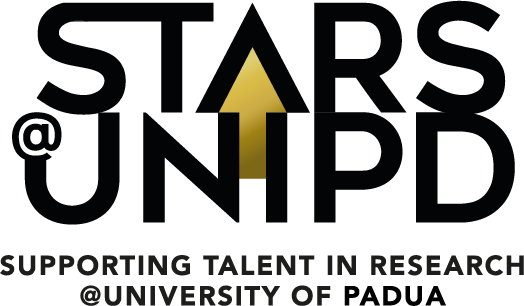TRISKELION - L'intelligenza artificiale nella performance democratica dei media: pratiche giornalistiche, interazioni e politiche digitali
TRISKELION - Artificial Intelligence in the News Media’s Democratic Performance:Journalistic Practices, Digital Engagements and Policies

Finanziato dall’Unione Europea – NextGenerationEU e dall'Università degli Studi di Padova nel quadro del programma STARS Grants@Unipd 2021
Ambito disciplinare Macroarea 3
Area scientifica Area 16 - Scienze politiche e sociali
Tipologia finanziamento Altro
Tipo di progetto Internazionale
Stato progetto Aperto
Data avvio: 1 February 2022
Data termine: 31 January 2024
Durata: 24 mesi
Importo: € 139.500,00
Coordinatore: Maria Alice Lima Baroni
Supervisor: Claudia Padovani
Principal investigator:
Maria Alice Lima Baroni
Abstract:
Artificial Intelligence technologies (AI) are transforming the News Media Industries’operations, organisational structures, as well as business models. But they are also posing unprecedented challenges to the news ecosystem, public sphere and democracy more generally. The project's overall goal is to outline a frame to develop an integrative conceptual framework for the study of AI-enabled journalism, gender and democracy. To fulfil this aim, TRISKELION will interrogate how AI is co-affecting the news ecosystem at three level, journalistic practices, digital engagements and policies, and explain their effect on the news media's democratic performance in Italy and Finland. The project combines cross-disciplinary research framework with empirical analysis, which comprises qualitative interviews, social media analytics, policy and gender-sensitive analysis. Media/computer scientists and social theorists have studied AI-enabled journalism, but have either tended to emphasise instrumental/technical applications of AI technologies in journalistic work or AI implications for social-political phenomenon. TRISKELION instead takes AI technologies as a starting point for the critique and investigation of the active role AI is playing in co-shaping the news ecosystem, in the context of gender inequalities in and through the media, and the overall framework of democratic challenges.TRISKELION's findings will have concrete implications for the study of computational journalism, gender and democracy, and also produce robust evidence to inform policy makers and media professionals dealing with the challenges and opportunities posed by AI in the journalistic profession, digital media environment, and democracy more generally.
Obiettivi:
1.Adopt a gender mainstreaming transversal approach to assess the active role of AI in co-shaping the news ecosystem at three levels: journalistic practices(news production and distribution), journalists’ engagements with news users in the digital sphere, and policies (the broader media ecology);
2.Employ social media analytics to explore journalists’ digital engagements with news users in a context of increased violence and hostility towards the news media, particularly towards women journalists, and examine the constitutive role of AI in co-shaping journalists’ agency and interactions with news users,and the implications for the news media’s democratic performance;
3.Cross-examine –through a comparative analysis –national/ EU’s actions on AI, data governance and regulation of global private platform companies and the translation of normative frameworks at the level of news media organisations, and the implications for their democratic role in society;
4.Outline a frame to develop an integrative theoretical framework for the study of AI-enabled journalism, gender and democracy.
Piano delle attività:
Research task 1 - Literature review. Objective: Compare and review existing relevant literature and theories of AI-enabled journalism, media policy, news media and gender equality, and (digital) news media in the context of democratic developments. Additionally, theories coming from democratic studies, philosophy of technological mediation and computer science.
Research task 2 -Qualitative interviews. Objective: Develop an understanding of how AI technologies co-shape the news ecosystem at three levels, journalistic practices, digital engagements and policies.
Research task 3 -Social media analytics. Objective: Provide an analysis of digital engagements between journalists and news users on Facebook and Twitter, and assess the extent to which the information, views and voices are plural and inclusive (as inclusion and plurality are one important standard to assess the news media's democratic performance).
Research task 4 -Policy and gender-sensitive analysis. Objective: Provide an analysis of the nexus between national and EU normative provisions, pertaining to AI, data governance and regulation of digital platforms, and their implementation at the level of news media organisations,and the implications for national media houses in relation to their democratic role.
Research task 5 –Development of the outlines of a frame for an integrated theoretical framework. Objective: Synthesis of findings to elaborate comprehensive answers for the research questions and develop the outlines of an integrated theoretical framework.
Contatti:
alice.limabaroni@unipd.it





